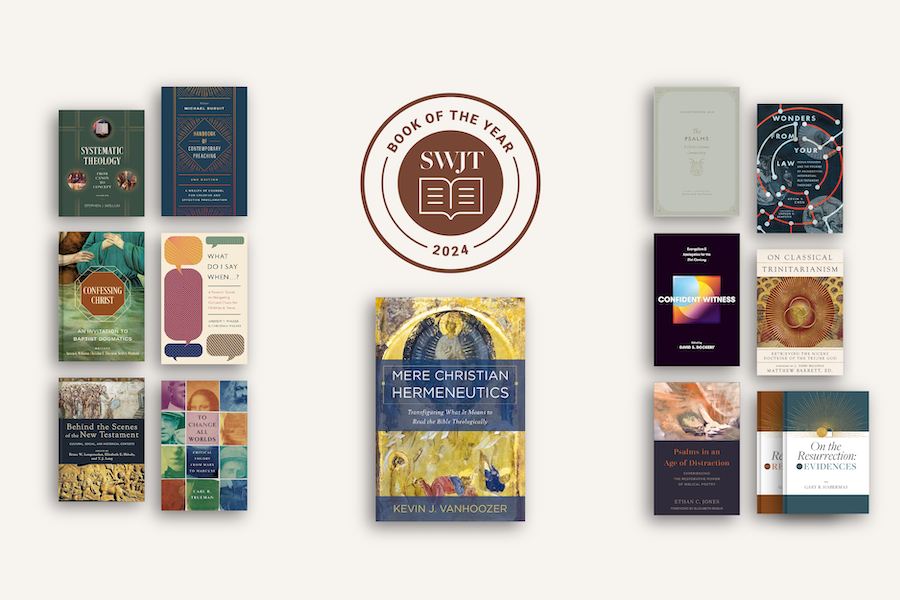Colloquium examines Christian ethics from ancient worldview

A two-day colloquium brought together scholars in the field of early Christianity to discuss the ways early Christian theologians reflected on Christian ethics. The Historical Theology Colloquium, held Sept. 6-7, was conducted by the Southwestern Center for Early Christian Studies and the Richard Land Center for Cultural Engagement.
The conference brought together 10 presenters from various universities and seminaries across the country as well as about 15-20 Southwestern faculty members and graduate students to reflect on Christian practice within the social life of the ancient world. D. Jeffrey Bingham, interim president at Southwestern Seminary, served as the keynote speaker, presenting on the topic of Irenaeus’ writings on wealth.
Among noted scholars lending their voices to the colloquium were Clayton N. Jefford, Paul Hartog and Brian J. Matz. Jefford’s most recent book is Didache: The Teaching of the Twelve Apostles (2013), which provides a glimpse of early Christian rituals and liturgy as the very first manual for Christian life. Jefford holds a Ph.D. from the Claremont Graduate School and is the co-editor of the academic journal Forum.
Hartog, a professor of New Testament and early Christian studies at Faith Baptist Bible College and Theological Seminary in Ankeny, Iowa, holds a Ph.D. in Theology from Loyola University. He enjoys researching the history of early Christianity and is the editor of Orthodoxy and Heresy in Early Christian Contexts: Reconsidering the Bauer Thesis (2015) and The Contemporary Church and the Early Church: Case Studies in Ressourcement (2010).
Matz, associate professor of the history of Christianity at Fontbonne University in St. Louis, Mo., is the author of Introducing Protestant Social Ethics: Foundations in Scripture, History, and Practice, which articulates how the resources of Christian social ethics might reframe contemporary political debates in the United States. Matz has earned two doctorates, one from the Catholic University of Leuven in Belgium, and the other from Saint Louis University.
The Southwestern Center for Early Christian Studies facilitates concentrated research and teaching in early Christianity to examine important theological voices of the past. Launched in 2017 under the direction of Stephen Presley, associate professor of church history at Southwestern Seminary, it supports special lectures, patristic reading groups, graduate and postgraduate seminars, and a group of faculty and students dedicated to researching the early church.
The center was intended to give Southwestern a voice in nationwide conferences exploring evangelicalism and early Christianity and to be “a clearing house for patristics resources,” Presley said.
The Richard Land Center for Cultural Engagement was established in 2007 to provide a location for focused research, conferences and the study of Christian morality and action. Under the direction of Evan Lenow, associate professor of ethics at Southwestern, its speakers evaluate a variety of relevant current issues.
This colloquium, a collaboration of both centers, was the third in a three-part series that analyzed faith, work and economics in the Old Testament, New Testament and early Christianity.



